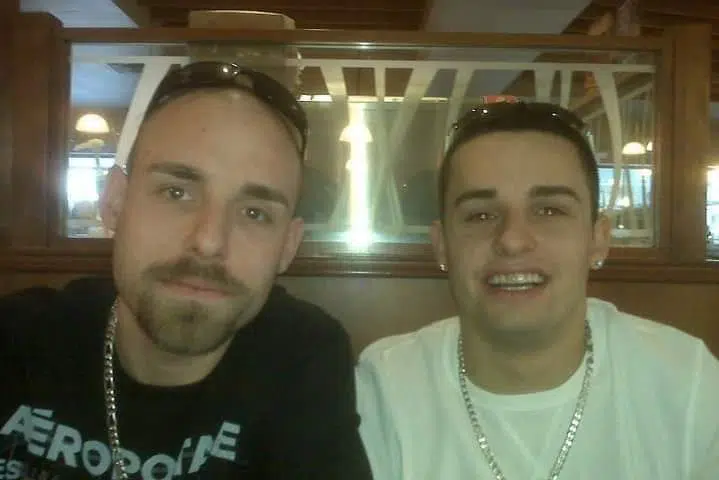For Josh Bundus, the term “opioid crisis” is too impersonal to describe the opiate addiction that killed his brother, devastated his family and nearly destroyed his own life.
“My family has been devastated, as are a lot of families and that’s the thing that bothers me is that people don’t seem to realize it just because it doesn’t affect you directly,” he said.
“(There are) three words that would sum up an opiate addiction: It is isolation, it is dependence and it is helplessness because a crutch can turn into a wheelchair very quickly.”
Ten years ago, Bundus went to a party and was stabbed multiple times. The trauma to his upper body was significant and he felt lucky to survive.
After days being pumped with heavy painkillers, he walked out of the hospital with a prescription for morphine and the beginnings of an addiction to opioids. When he couldn’t figure out what was wrong, it was his brother Jordan who recognized the signs of an opiate withdrawal.
“He had been a user for a long time before. I was never a recreational user; it was due to medical issues that I became addicted,” Josh explained.
In May 2015, the brothers were together again before tragedy hit — Jordan died of an overdose.
“He passed in the bed beside me. He had just got out of jail the night before and by the next morning he was gone,” Josh recalled.
The coroner’s report showed multiple drugs in Jordan’s system, including fentanyl. It was a tragedy for the Bundus family, but most people didn’t seem to care.
“I’ve found that a lot of people are very cold, very numb to the fact that people are hurting and people are dying,” Josh said. “It doesn’t offend me. It just terribly, terribly depresses me.”
Even after his brother died from drugs, Bundus kept using to manage his own pain.
“It’s hard. Every day it’s hard and this is all driven by pain. Whether it’s physical, emotional or mental, it doesn’t matter, this is all pain-driven,” he said.
While he had a prescription from a doctor, Bundus admitted he was constantly driven to the streets in search of higher doses. He said that’s the toughest part about opioid drugs; they build up in your system.
“That’s the thing with methadone and all opiates really,” he said. “It’s a cumulative effect and the higher your dose, eventually you’re going to get a tolerance to that and you need a higher dose. There’s nowhere to go but up until you overdose and die.”
As doctors and officials began to closely track prescriptions for opioid drugs, Bundus said he was flagged as a liability and his legal supply was cut off cold turkey after nine years. He wants to highlight what he sees as a gap in the system that leaves people like him with few options.
“They cut you off. Well, where are you going to go? You’re going to go to the street and what are you mostly likely going to get? You’re most likely to get carfentanyl and you’re most likely to OD and die,” he said.
Bundus says it was his harm reduction doctor who helped him the most by prescribing methadone but the few doctors who will help in that way are overworked.
Regina police reported 19 opioid drug overdoses over a five-day stretch, all of which were believed to be linked to fentanyl. The Saskatchewan Health Authority confirmed Regina EMS responded to 41 overdose calls in the same time frame and administered 33 doses of naloxone, a drug that can save people from a fatal overdose on fentanyl.
Hearing that number doesn’t even scratch the surface of the drug subculture Bundus has witnessed feeding the cycle of crime and violence in Regina.
“The way that people look down upon ‘junkies,’ those same ‘junkies’ put that same hate right back at them right, so that bitterness and resentment that is reflected right back,” Bundus said.
He is interested to hear about the plans to open a safe consumption site in Saskatoon this May, describing it as a good idea if it is done properly. He admitted judgment and shame still pose a significant barrier to treatment.
To him, compassion is the key to helping more addicts get into recovery, along with hiring more people to provide services on the front lines.
“On the ground, people … are overworked, they’re over-stressed and I understand we’re only human and people get turned away and mistreated all the time,” Bundus said.
“There’s no victory here. This is an ongoing thing and we’re going to have to just accept that. Do we want things to get better or do we want things to get worse?”
While he hopes to see a successful co-ordinated response to the drug addiction crisis from all levels of government, he said it has to start closer to home with people who care. He said he was saved by the people who cared enough to help him like his mother and his family along with one doctor who continues to inspire him on his road to recovery.
“People don’t need to die,” Bundus said. “Families do not have to be destroyed.”











